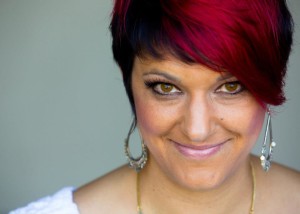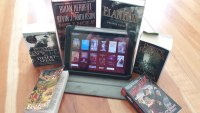 As writers, we love to focus on writing, on creating that next great story. It took me a while to realize that typing “The End” is only the completion of the first part of the process. Once we finish that first draft, get the story out to beta readers, compile all the useful feedback, determine edits, and finish subsequent drafts, we finally have a story we feel rocks on all levels and is ready to go.
As writers, we love to focus on writing, on creating that next great story. It took me a while to realize that typing “The End” is only the completion of the first part of the process. Once we finish that first draft, get the story out to beta readers, compile all the useful feedback, determine edits, and finish subsequent drafts, we finally have a story we feel rocks on all levels and is ready to go.
That’s when we need editors.
Some indie authors try to claim they don’t need an editor, but I’ve never seen any such story turn out well. Not as well as it could have been. Not as well as it should have been. Not well enough to compete in today’s market with well-read readers who can spot an unedited story fast.
A book without an editor is like a theatrical production without dress rehearsal. You’ve got the characters, the dialogue, costumes, and a setting, but the whole has not been polished to where an audience can enjoy it.
Why invest so much time in producing a book only to undermine the finished product?
Usually the reason is one of two things: Time or Money.
Time: with the internet making it so easy to get books available to readers, it is so incredibly tempting to skip the careful edit and just getting it out to readers faster. Why wait when you could be selling copies already? The truth is taking a little more time and polishing the story will result in far better reviews and far more copies sold. I’ve started reading books that skimped on final polishing, and I was universally disappointed and usually threw the book away without finishing.
Money: Editors are not free. Yes, they’re an investment and authors need to find a way to cover that investment. If you don’t believe in your story enough to make that investment, convinced you’ll sell more than enough copies to still profit, then how are your readers going to believe in it?
Then again, with avenues like Kickstarter available, it’s often now possible to raise the money to cover such costs up front instead of having to fork over all the cash yourself. I plan to launch a Kickstarter campaign for one of my stories next year.
How do you find a good editor? There are lots of editors out there, and just like anything else, there are good ones and bad ones. Here’s where networking comes in. Talk with other authors about editors they liked and ones they didn’t. Good editors will provide a listing of stories they’ve edited, and that can provide great insight into whether or not they might be a good fit.
Once you find an editor, you’ve got to get on their schedule. Good editors are sought after and usually their schedules are booked out weeks or even months. Get on the list early, and don’t be late with your work. If you miss your deadline, it may be a while before they can fit you in again. If you see you’re going to be late, notify the editor as soon as possible to make it easier for them to rearrange their schedule with the least amount of disruption.
I worked with our own Joshua Essoe on the manuscript for Set In Stone, a YA Fantasy novel currently in the hands of my agent. I realized I needed to make some significant changes to the manuscript prior to sending it in, so we had to reschedule a couple of times. Joshua was very accommodating, but I tried to warn him far in advance, as soon as I realized I was going to be late.
That brings up another point: make sure your book is really finished prior to hiring an editor. If you’ve just completed your first draft, I’d recommend you take the time to have some beta readers finish it and compile their feedback. It’s likely you’ll need to make some changes. Go through it a couple more times to ensure it’s really where you want it, and that the book you wrote is really the book you thought you were writing. Only then will you be able to maximize the benefit of an editor. If they’re so busy giving you feedback on major structural issues with the work, it’ll be harder for them to help you really polish it. And if you want to go back again to hire them for a second pass, that’s going to cost more since they now have to invest more time in the project.
Even when your book is DONE and ready to go, you’ve found the editor you think will be perfect for the work, and you’ve sent it off to them, there’s the question of style. Some authors and editors just don’t see eye to eye on matters of style. There’s no way I know of to completely protect yourself from running into a situation like this.
Working with Joshua, I was extremely pleased. His comments were spot on, thoughtful, and insightful. I agreed with his approach to editing, and almost universally applied his suggested changes. With a different manuscript (also in the hands of my agent), I wasn’t quite so lucky. The editor was very experienced and well respected in the industry, and much of their suggestions were beneficial. However, we differed over some aspects of style. At first this worried me, and I wondered which of us wasn’t getting it. That’s where working with a second editor on a different work proved beneficial. I could compare the two editors’ styles, and realized they approached the same questions sometimes from very different points of view, with very different resulting recommendations.
So I had to make very conscious decisions regarding my own style and how I wanted to apply tone and voice to each story. I had made some of those decisions while writing, but hadn’t clearly defined it. The editing process forced me to choose specific stylistic approaches in each story. Only then could I see clearly which advice to accept and which to ignore. In some cases, the editor didn’t understand the style, and gave bad advice.
Just like everything else, it’s a learning process, and I consider the funds spent on editing both manuscripts well worth the investment.
Take away:
- Prior to engaging an editor, make sure the book is really done.
- Find an editor you feel you’ll be able to work well with. Use advice from other authors, and do your research.
- Get on their schedule well in advance, and don’t be late with sending them the manuscript.
- Notify them early if you fear you’ll miss a deadline.
- Study their feedback carefully. Some of it may not be right. In the end, it’s your book and all decisions are your responsibility.
- Don’t ever release a novel without a professional edit.




